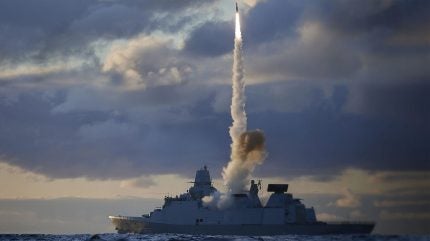
RTX subsidiary Raytheon has secured a $344m contract aimed at modernising missile systems important for the defence of the US and its international allies.
The contract focuses on developing two missile variants – the SM-2 Block IIICU and SM-6 Block IU – featuring a shared guidance section housing electronics and software.
This upgrade is intended to improve missile production by streamlining manufacturing processes by adopting a common production line. By sharing a newly designed guidance section, target detection device, flight termination system, and electronics unit, Raytheon aims to enhance flexibility, scalability, and cost-effectiveness in missile production.
In a development this month, Raytheon’s SM-6 missile intercepted a medium-range ballistic missile during a successful at-sea test. The test was conducted off Hawaii’s coast with USS Preble (DDG 88).
“Upgrades under this contract will allow us to increase speed and efficiency in the production of these weapon systems that are integral to the defence of the US Navy and our allies,” stated Kim Ernzen, president of Naval Power, Raytheon.
“It’s also a very important step forward for our international customers, as this will be the first time that Standard Missile active radar technology will be fielded by the US’s international allies.”
The introduction of Standard Missile active radar technology to international allies is of particular significance. Foreign Military Sales primarily fund the development programme.
The upgraded missile variants are slated for deployment by key allies, including the US, Australia, Canada, Japan, and Korea. Work is underway in Tucson, Arizona.
With 22% of the North American missiles and missile defence systems market, Raytheon Technologies Corp is projected to be the second largest shareholder in the region. RTX Corp (RTX) is also the third highest revenue earner within Europe over 2023–2033, as revealed by GlobalData’s intelligence on the global missiles and missile defence systems market.
GlobalData’s report also highlights that the US’s SM-6 block 1 programme is expected to cost $18.1bn.
While the initial contract focuses on common sub-section development, a follow-on contract expected later this year will encompass missile-level qualification events and at-sea flight tests tailored to the SM-2 Block IIICU configuration.




